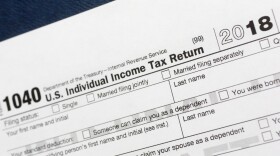Updated 2/23/21, 9:40 a.m.
A proposal to raise the minimum wage to $12 an hour is moving forward at the state legislature. But is increasing the minimum wage a good idea for Hawai?i's economic recovery?
The last time the state passed a law increasing the minimum wage was in 2014, when it was raised over four years from $7.25 an hour to $10.10.
The legislature considered proposals last year to increase it again, but then the pandemic hit. State lawmakers then shifted their focus on the state's response to the coronavirus.
Chamber of Commerce Hawai?i president and CEO Sherry Menor-McNamara says before the pandemic struck, the organization was supportive of a minimum wage increase. But Menor-McNamara says now is not the time to pass such a proposal.
"We have to focus on our economic recovery," she said. "Let's help and support these small businesses so they can continue to keep their doors open, and continue keep positions available to the extent possible. So let's focus on that."
Menor-McNamara also notes that for employers it's not just as simple as adding another two dollars an hour.
"Hawai?i is the only state in the nation that has prepaid health care. So when you factor in the health care that is provided to full time, or employees that work more than 20 hours, that's an added cost," she said. "So we're looking at $3 more per hour on top of the minimum wage."
Menor-McNamara says there are other costs for employers such as workers compensation, unemployment insurance, payroll taxes and temporary disability programs.
But advocates argue raising the minimum wage will not only help workers make ends meet, but also stimulate the local economy.
"There's research that shows that increasing minimum wage increases spending, putting money right back into local stores and restaurants," said Gavin Thornton, executive director of the Hawai?i Appleseed Center for Law and Economic Justice.
Thornton says businesses have been making the same arguments even during times of economic growth. He notes the federal minimum wage was enacted in 1938, during the height of the Great Depression.
"Hawai?i's been losing popluation because people have been having to leave Hawai?i since they can't afford to make ends meet. That is a major problem for Hawai?i's economy that we've got to address," Thornton said. "And the way we do that is by increasing people's capabilities to make ends meet here by helping to ensure that they have a wage that they can live on."
"When we last increased the minimum wage, which happened from the period of 2015 to 2018, our state's unemployment rate dropped by 52% to record lows."
Thornton says raising the minimum wage would have a positive impact on low wage earners working in a wide range of industries. He says 90% of those earning minimum wage are over the age of 20. Of that, 22% are parents and 43% have received some college education.
In 2018, the state department of business, economic development and tourism estimated workers need to earn at least $17 an hour to be able to meet the cost of living in Hawai?i.
Thornton says he believes that estimate is on the lower end of what low-wage earners need to live in the state.
Menor-McNamara says addressing the state's cost of living is a complex multi-faceted issue, and increasing the minimum wage is not a silver bullet.
"We need to take a hard look at solving issues such as lack of available and affordable housing, a reliance on imported goods, and other types of cost drivers that are making it challenging to live in Hawai?i," she said.




